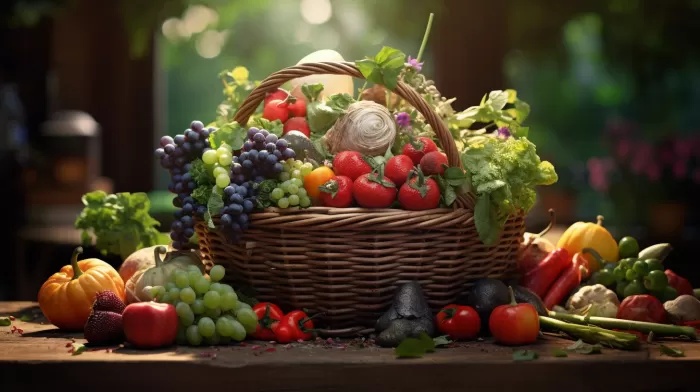You’ve probably heard that eating certain foods can have a positive impact on your health, including reducing the risk of developing cancer. What you may not know, however, is the extent of this impact and how some plant compounds can be combined with conventional treatments to improve your odds even further. In this post, we’ll explore some of the most powerful cancer-fighting foods and plants, and examine the research behind their efficacy.
Let’s dive into the specifics of the study this information comes from. A team of 180 scientists used various food and plant compounds to fight cancer, examining the natural elements found in plants, herbs, and food. Among the compounds tested were resveratrol, epigallocatechin gallate (EGCG), curcumin, lycopene, vitamins D and B, selenium, carotenoids, luteolin, aged garlic, and black raspberry extract. The results were nothing short of astounding.
Here’s what they found: These naturally occurring compounds have a wide range of cancer-fighting properties. They can stop DNA mutations, disrupt communication between cancer cells, kill cancer cells that evade the body’s defenses, reverse the immortality of cancer cells, disrupt cancer’s metabolism, reduce inflammation which can promote tumor growth, prevent cancer from invading other tissue, and even open cancer cells up to being killed off by the immune system.
Now that you know what these substances can do, let’s take a closer look at some of the more standout compounds:
Resveratrol: Found in red grapes, red wine, peanuts, and some berries, resveratrol has antioxidant and anti-inflammatory properties, which can be helpful in preventing cancer.
Curcumin: A powerful anti-inflammatory agent, curcumin is found in turmeric – the spice that gives curry powder its yellow color. Researchers believe that it may help prevent various types of cancer, including breast, lung, and gastrointestinal cancers.
Lycopene: Found in tomatoes, watermelons, and pink grapefruits, lycopene is an antioxidant that neutralizes free radicals, which can damage cells and lead to cancer.
Vitamin D: This essential nutrient is important for maintaining strong bones, but it also plays a role in cell-to-cell communication, which can help keep cancer cells in check. You can get vitamin D from sunlight, fortified foods, and supplements.
Selenium: This essential trace element has been shown to reduce the risk of some cancers, including prostate cancer. Selenium is found in foods like Brazil nuts, fish, and lean meats.
Carotenoids: These phytochemicals, found in yellow, orange, and red fruits and vegetables, act as antioxidants which help to neutralize free radicals and reduce cancer risk.
Luteolin: Abundant in celery, parsley, green peppers, and chamomile, this versatile compound has anti-inflammatory, antioxidant, and even anti-tumor properties.
Aged garlic extract: Garlic has long been known for its numerous health benefits, including cancer prevention. Aged garlic extract has been shown to improve immune function and reduce the risk of certain cancers, such as stomach cancer.
Black raspberry extract: While more research is needed, black raspberry extract has shown potential as a natural cancer-fighting agent, specifically in fighting colorectal cancer.
What about combining these compounds with conventional cancer treatments? That’s another area where the researchers found promise. In fact, 62 percent of the 74 natural compounds tested had complementary cancer-fighting effects alongside traditional treatments.
So, what does this all mean for you? It means that incorporating these cancer-fighting foods and plants into your diet can not only improve your overall health but could also potentially reduce your risk of developing cancer in the first place. Furthermore, knowing which compounds can help boost the effectiveness of conventional treatments is important information for those already battling cancer.
While Big Pharma may want you to believe that synthetic chemicals are the ticket to health, nature has already provided us with all the tools we need. Maintaining a healthy lifestyle with a balanced diet, regular exercise, and limiting exposure to toxins will set the foundation for a strong immune system. Interweaving these cancer-fighting compounds into your daily routine can only help your odds in the long run.



